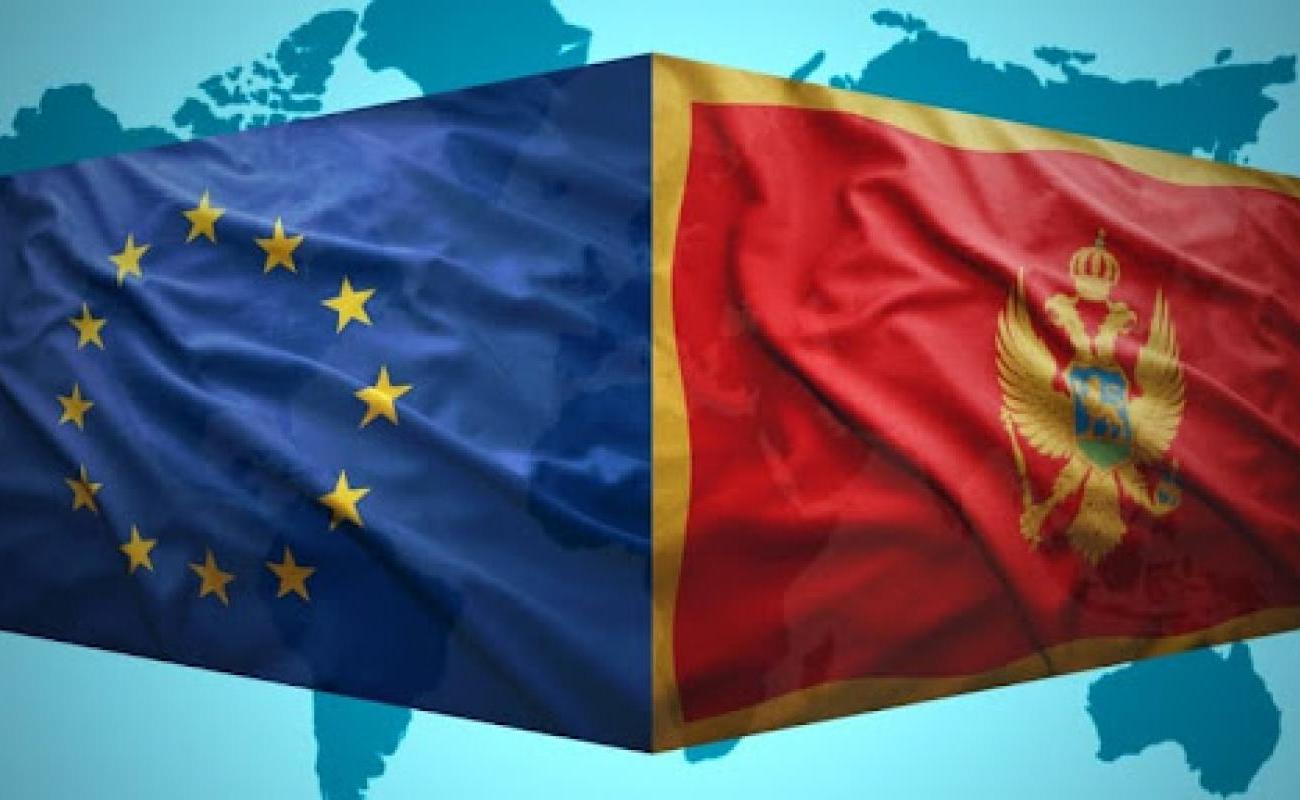Montenegro has continued with reforms and results in the financial chapters

In the previous period, Montenegro has continued with the reforms in the financial chapters, which is also recorded in this year’s Report of the European Commission. By adopting the package of support to the economy and citizens, as well as significant financial support from the EU, the Government of Montenegro took timely measures to reduce the negative consequences of the coronavirus pandemic, it was assessed at the meeting of the Subcommittee on Economic and Financial Affairs and Statistics.
At the 14th meeting of this Subcommittee between Montenegro and the European Union, held online, covering economic and financial issues and challenges, as well as policies under Chapters 17, 18, 32 and 33, representatives of the Montenegrin authorities met with representatives of the EC with activities carried out in the previous period in these areas.
Andrej Orlandić, Head of the EU Sector Policy Department at the Office for European Integration, thanked for the EU support expressed particularly during the pandemic, but also for the messages from the recent EU-Western Balkans summit which confirmed the Union’s undivided commitment to the European integration process.
He informed his colleagues from the EC about the fourth and fifth aid packages adopted by the Government in the period since the former meeting of the Subcommittee, which are aimed at supporting vulnerable groups, as well as maintaining liquidity of domestic companies and maintaining employment levels, with additional support to the economy before tourist season.
Orlandic also commented on the latest EC report, expressing pleasure that progress had been noted in two of the four chapters covered by this subcommittee.
He acquainted his interlocutors with the activities in the chapters covered by the Subcommittee, including the Program of Economic Reforms 2021-2023, Revised Guidelines for Macroeconomic and Fiscal Policy for the period 2021-2023, Annual Plan of Official Statistics for 2021, Consolidated Report on Governance and Internal Control in public sector of Montenegro for 2020, the Decree on the establishment of internal audit in the public sector, and the Law on Budget of Montenegro for 2021.
He emphasized that Montenegro remains committed to fulfilling the remaining obligations from the negotiating chapters 17 – Economic and Monetary Union, 18 – Statistics, 32 – Financial Supervision and 33 – Financial and Budgetary Provisions, in order to improve the situation and achieve full preparedness for EU membership.
State Secretary at the Ministry of Finance and Social Welfare, Branko Krvavac, presented the results so far in terms of consolidating public finances and improving fiscal indicators in 2021. When it comes to the economic policy of the Government in the medium term and the Europe Now! Program, he presented additional plans which contains a number of new tax policy measures aimed at establishing conditions for improving living standards and reducing the tax burden on work, all with the aim of creating preconditions. for long-term sustainable economic growth and development, aimed at the stability of public finances as one of the most important preconditions for that.
The representative of the Ministry of Finance and Social Welfare and the head of the Subcommittee, Bojana Bošković, thanked her colleagues from the European Commission for their cooperation during the preparation of the Subcommittee meeting and expressed the expectation that it would be an occasion to exchange information on activities in these subcommittees. As well, she expressed the expectation to receive from the EC colleagues’ further recommendations and guidelines from the EC that are of particular importance for the continuation of the implementation of reforms. She particularly stressed the progress made in the field of economic criteria, which will be reflected in this year’s Program of Economic Reforms, which will be sent to the European Commission by the end of January.
Šištof Zurek, the representative of the Commission in the Directorate General for Neighborhood Policy and Enlargement Negotiations, emphasized the EU’s strong support for Montenegro and its European aspirations. He underlined recent examples of EU commitment – the visit of European Commission President Von der Leyen, the Summit on the Hill and, in the economic context, last year’s adoption of the Economic and Investment Plan for the Western Balkans, recently supplemented by IPA III.
He referred to the Report for Montenegro, confirming that the document re – contains a detailed overview of the situation and clear recommendations for progress towards the EU for all negotiating chapters, including the topics discussed at the Subcommittee meeting. Emphasizing that credible fiscal strategies as well as debt strategies are needed to mitigate macroeconomic risks, Zurek said: “Montenegro’s economy is recovering strongly in 2021, spurred by a faster-than-expected revival of tourism, increased exports and stronger private consumption”.
The head of the Unit in the Directorate General for Economic and Financial Affairs, Uwe Stam, referred to the economic situation, with a special emphasis on the effect of the Covid – 19 pandemic. He praised the progress made in certain financial chapters, which was noted in this year’s Report on Montenegro, and stressed the need to adopt a new fiscal strategy in order to strengthen public finances and reduce public debt. The establishment of the Fiscal Council would help strengthen transparency and implement fiscal rules. He also praised the efforts made in part of the business environment, pointing out that further activities are needed, including in the tourism sector.
